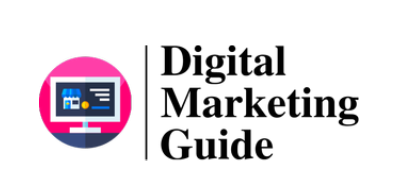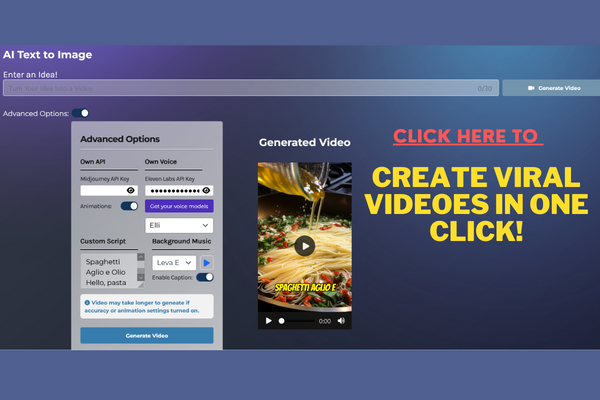
As a smaller publisher, I have found myself facing higher expectations in the ever-evolving world of publishing. In this blog post, I aim to unveil the challenges that we, as smaller publishers, often encounter. From limited resources to fierce competition, the struggles we face are unique and demanding. Join me as I delve into the reasons why smaller publishers are held to higher standards, and explore the obstacles we must overcome to succeed in this dynamic industry.
Why Smaller Publishers Face Higher Expectations: Unveiling the Challenges
Introduction:
Being a publisher in today’s digital landscape is no easy feat. With the constant evolution of search engine algorithms and ever-changing user expectations, staying ahead of the game can be a daunting task. In this article, I will delve into the challenges faced by smaller publishers and why they are held to higher expectations compared to larger media sites. Through my discussion with Derek Hales in Episode 324, I will shed light on the critical aspects of EEAT (Expertise, Authoritativeness, Trustworthiness), topical authority, and how smaller publishers can stay successful in a highly competitive niche.
The Impact of EEAT and Topical Authority:
In Episode 324, Derek Hales and I discussed the significance of EEAT and topical authority in today’s search engine optimization landscape. Google’s algorithms have increasingly emphasized the importance of expertise, authoritativeness, and trustworthiness in evaluating a website’s credibility. Smaller publishers often struggle to establish themselves as industry leaders due to limited resources, resulting in a constant battle for recognition and trust from search engines and users alike.
Staying Successful in a Highly Competitive Niche:
As a smaller publisher, staying successful in a highly competitive niche requires a strategic approach. Here are some key strategies that can help smaller publishers thrive:
-
Niche Focus: Instead of trying to cover a broad range of topics, focusing on a specific niche allows smaller publishers to establish their authority and provide in-depth, specialized content that larger media sites may overlook.
-
Building Relationships: Collaborating with industry experts, influencers, and other publishers can significantly enhance a smaller publisher’s reach and credibility. By forming strategic partnerships, smaller publishers can tap into a larger audience and gain valuable backlinks.
-
High-Quality Content: Investing in high-quality content creation is crucial for smaller publishers to stand out. By consistently producing well-researched, informative, and engaging content, these publishers can demonstrate their expertise and build a loyal readership.
-
SEO Optimization: Smaller publishers need to pay close attention to SEO optimization techniques to increase their visibility in search engine results. This includes optimizing titles, meta descriptions, headings, and incorporating relevant keywords in a natural and strategic manner.
Protecting Your Site from Google Updates:
Google’s algorithm updates can have a significant impact on a publisher’s search engine rankings and organic traffic. Smaller publishers often lack the resources to recover quickly from such updates. Here are some steps to protect your site from future Google updates and bounce back from past ones:
-
Stay Informed: Keeping up-to-date with the latest SEO trends and Google’s algorithm changes is crucial. Following reputable SEO blogs, attending industry conferences, and participating in relevant forums can provide valuable insights for adapting your strategy.
-
Diversify Traffic Sources: Relying solely on organic traffic from search engines can be risky. Smaller publishers should explore alternate traffic sources such as social media, email marketing, and collaborations with other websites to reduce dependence on search engine rankings.
-
User Experience Optimization: Google considers user experience as a crucial ranking factor. Smaller publishers should focus on enhancing site speed, mobile responsiveness, and overall usability to provide a seamless browsing experience for their audience.
-
Re-evaluate Content Strategy: Assessing the impact of algorithm updates on your site’s content performance is essential. If certain types of content are consistently affected, consider adjusting your content strategy to align better with Google’s expectations and user preferences.
Analyzing Poorly Performing Sites on Social Media:
While it may be tempting to analyze poorly performing sites on social media, it is more valuable for smaller publishers to study decent sites that were affected by updates. By examining these sites, smaller publishers can gain insights into the factors that contributed to their success or downfall, enabling them to refine their own strategies and improve their chances of success.
The Ad Challenge for Smaller and Midsize Sites:
The prevalence of ads on websites has been a contentious issue among publishers. Smaller and midsize sites face higher expectations when it comes to ad placements and usability standards compared to larger media sites. Unfortunately, these smaller publishers often bear the brunt of negative consequences if their ad placements are deemed excessive or intrusive.
The Fors Example: An Egregious Case:
One example of a site that pushes the limits of ad placements is Fors. This site incorporates a high number of ads that interrupt users’ browsing experience. While larger media sites may get away with placing excessive ads due to their established authority and traffic, smaller publishers cannot afford to compromise on usability and risk driving away their audience.
Conclusion:
Being a smaller publisher in today’s digital landscape comes with unique challenges. The expectations placed on smaller publishers are higher compared to larger media sites, especially regarding expertise, authoritativeness, trustworthiness, and ad placements. However, by adopting niche focus, building strategic relationships, producing high-quality content, and staying informed on SEO trends, smaller publishers can navigate these challenges and carve out a successful niche for themselves.
FAQs:
-
How can smaller publishers establish expertise and credibility?
- Smaller publishers can establish expertise by focusing on a specific niche and consistently producing high-quality content. Building relationships with industry experts and collaborating with other publishers can also boost credibility.
-
How should smaller publishers protect their sites from Google updates?
- Smaller publishers can protect their sites by staying informed on SEO trends, diversifying traffic sources, optimizing user experience, and re-evaluating their content strategy based on algorithm changes.
-
What makes ad placements more challenging for smaller publishers?
- Smaller publishers are held to higher usability standards compared to larger media sites. Excessive or intrusive ad placements can negatively impact user experience, potentially driving away their audience.
-
How can smaller publishers learn from updates affecting decent sites?
- Studying sites that were affected by updates can provide insights into the factors that contribute to success or downfall. Smaller publishers can refine their strategies based on these learnings.
-
Are there any notable examples of sites with egregious ad placements?
- One example of a site with excessive ad placements is Fors. While larger media sites may get away with it, smaller publishers should prioritize usability and user experience to succeed.

